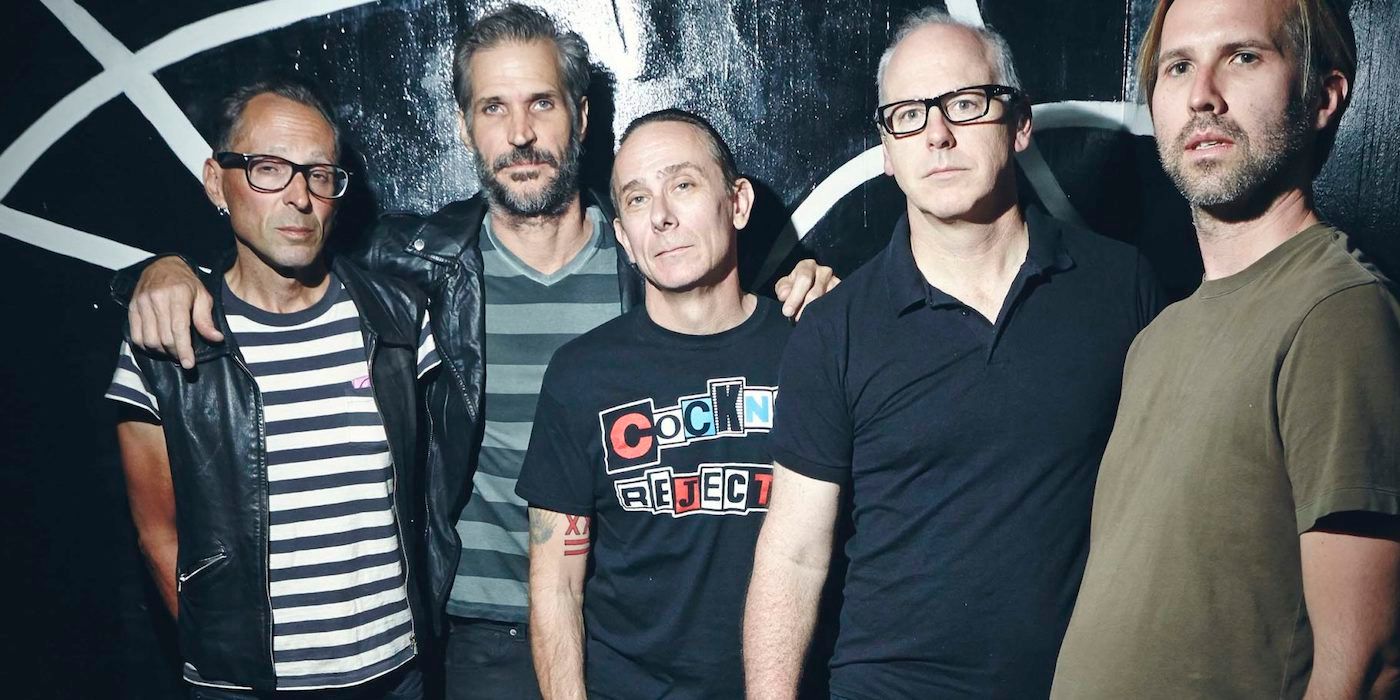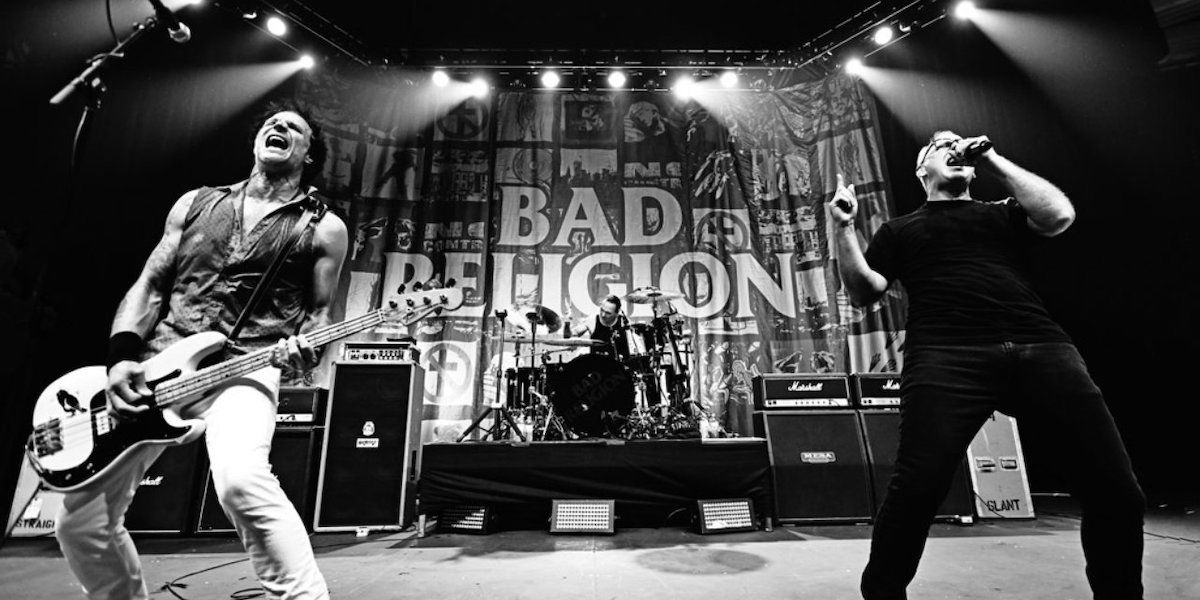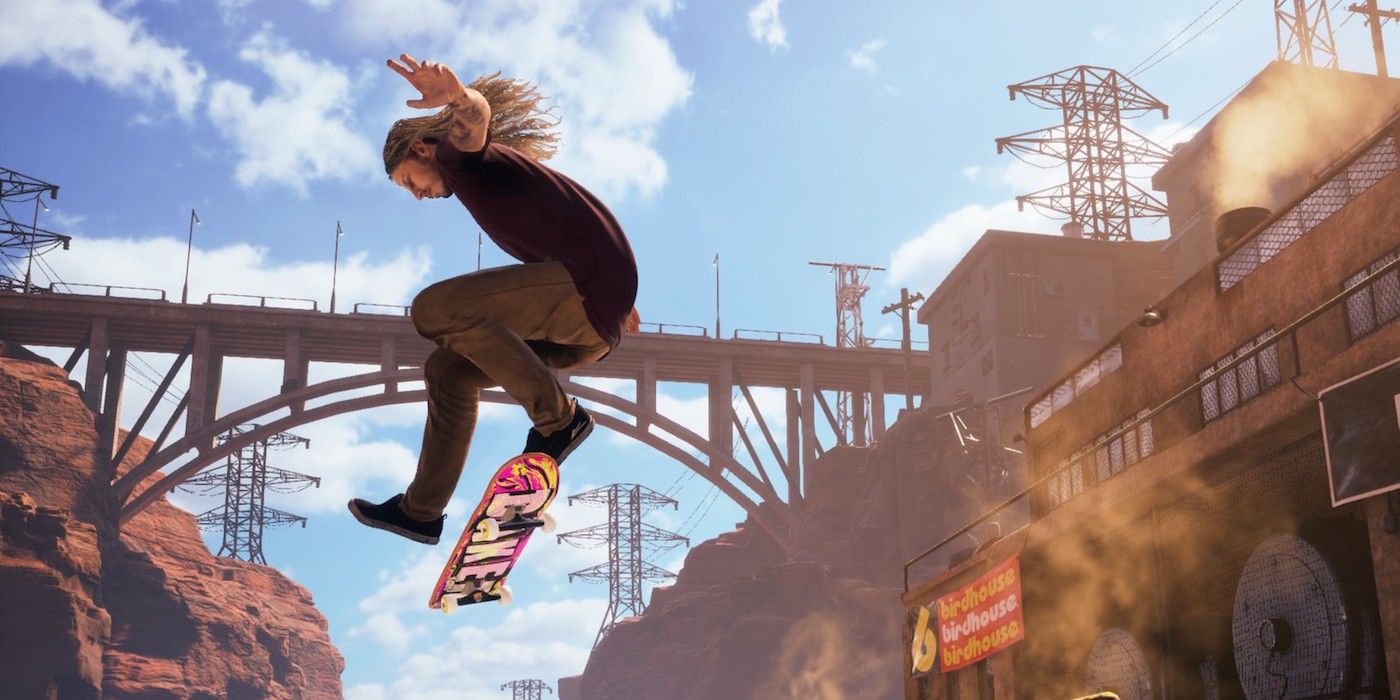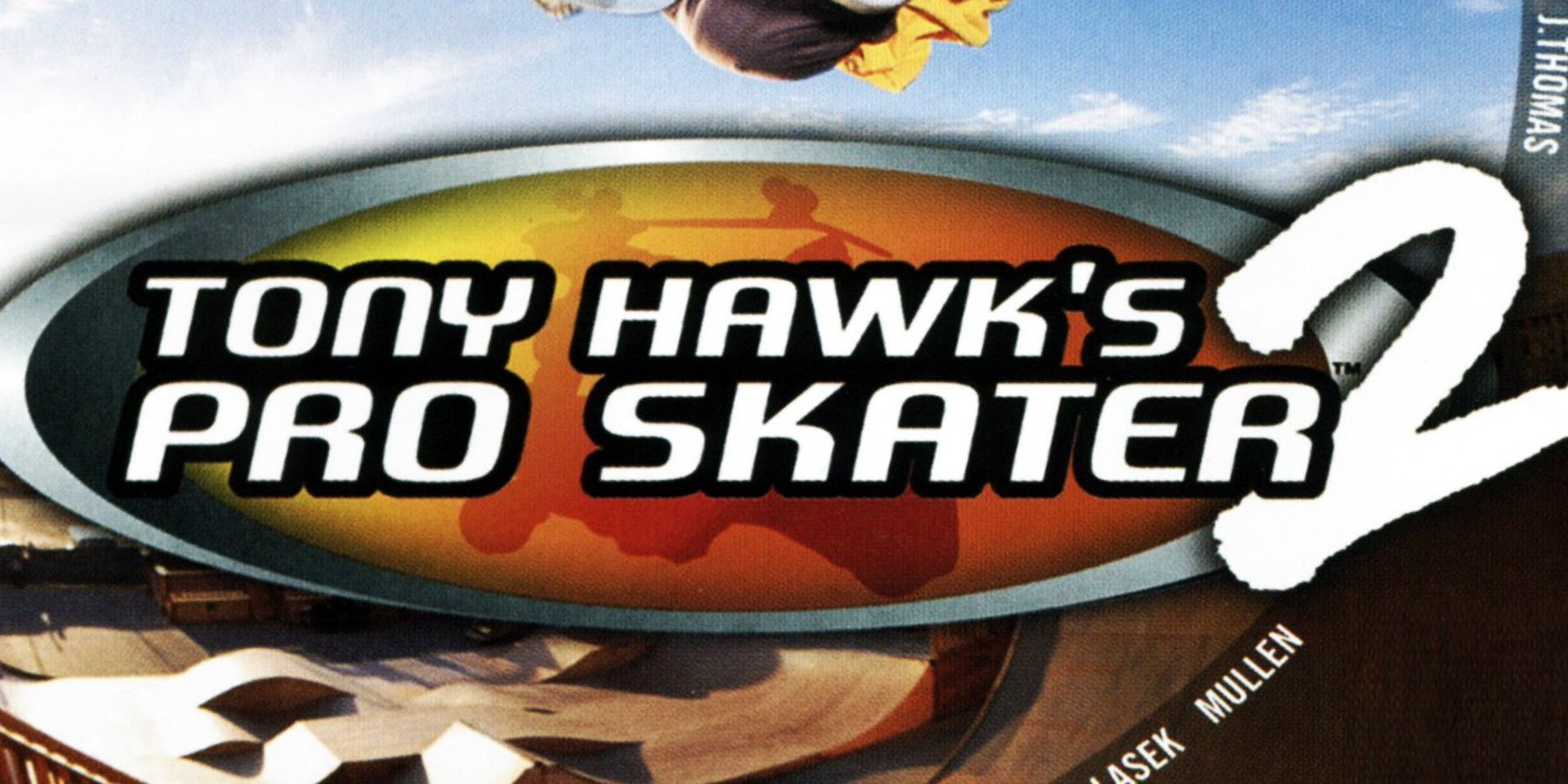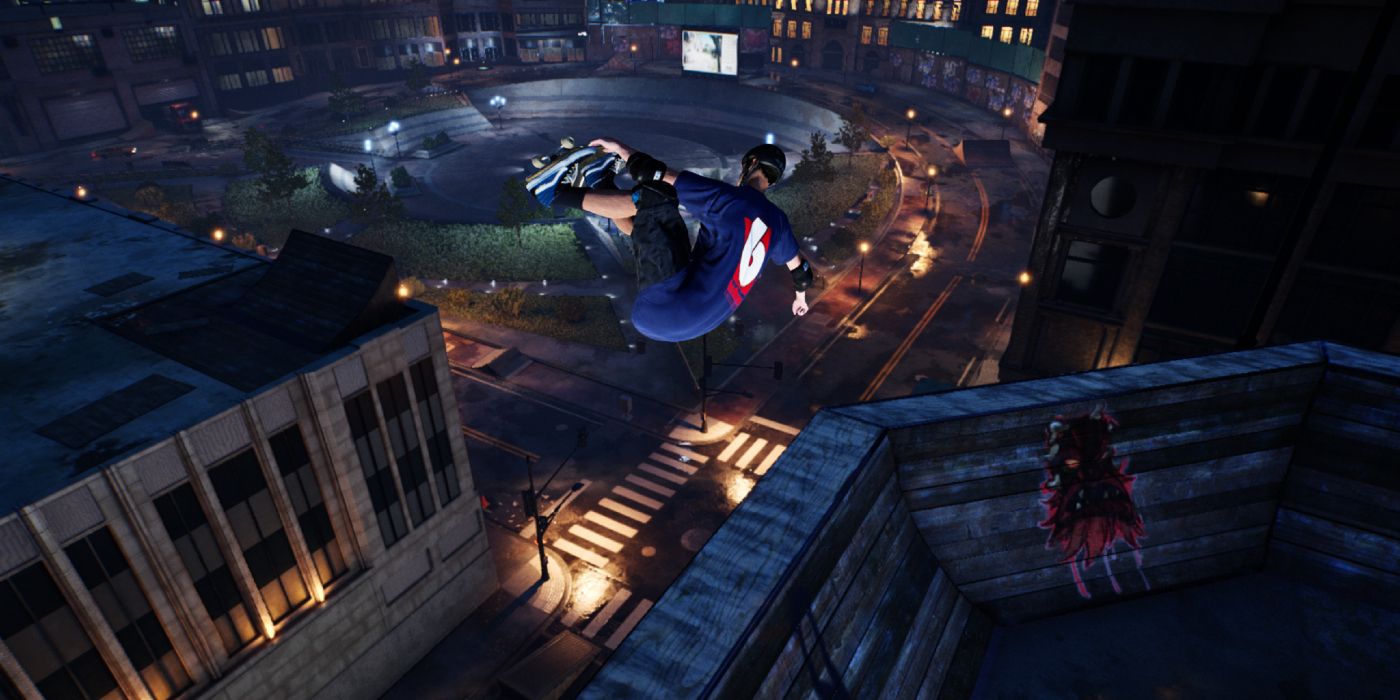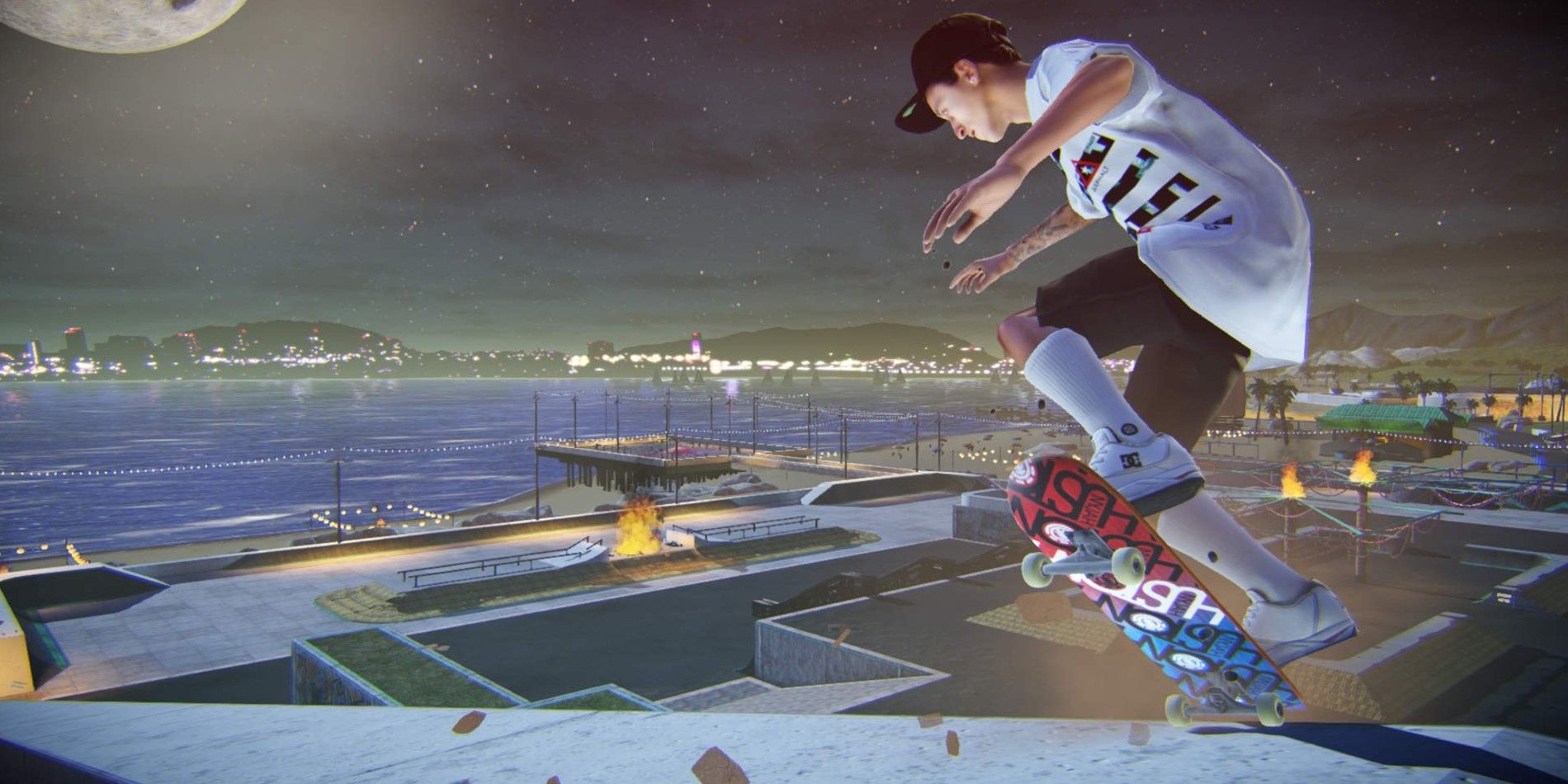Twenty years after "You" by Bad Religion first appeared in Tony Hawk's Pro Skater 2, the original PlayStation classics are returning with Tony Hawk's Pro Skater 1 + 2 for PlayStation 4 and Xbox One. Publisher Activision has enlisted developer Vicarious Visions (The Crash Bandicoot N. Sane Trilogy) to create this high-end remaster. Tony Hawk's Pro Skater 1 + 2 brings back the classic Tony Hawk gameplay (with some enhancements from later titles) and sets the action within the established framework of the original two entries in the long-running extreme sports saga.
Bad Religion bassist and co-founder Jay Bentley is a punk rock icon and lifelong skateboarding enthusiast. The band remains one of the original "skate punk" acts whose socially resonant message resonated with the 1980s skateboarding counter-culture movement. To this day, Bad Religion continues to blend their melodic hooks with provocative lyrics that directly reflect the current political climate. Their latest album, Age of Unreason, released in 2019 to strong critical acclaim from punks of all ages. After "You" appeared in THPS2, "Big Bang," "We're Only Gonna Die," "Social Suicide," and "Only Rain" appeared in subsequent Tony Hawk video games.
In preparation of the upcoming release of Tony Hawk's Pro Skater 1 + 2, Jay Bentley spoke to Screen Rant about the trifecta of cultures: skateboarding, punk rock, and video games. All three are linked by feelings of disdain from older generations, and all three serve as conduits for youthful expression and rebellion. Bentley discusses the synergy between these cultures and his own experience as a skateboard punk. He also admits that, at age 56, it's a bit harder to walk away after bailing at the bottom of a pool. Regardless, he currently has no plans to ever stop riding or rocking.
Tony Hawk's Pro Skater 1 + 2 is currently scheduled for release September 4 for PlayStation 4, Xbox One, and PC.
Tony Hawk's Pro Skater 2 was the first one you were in, and that was in 2000.
Is that right? 2000... I guess that is right!
We'd like to think that a lot has changed, and it some ways it has. And it some ways it hasn't. Your music, for better or worse, is as relevant today as ever. Maybe even more at this particular moment in history. Did you ever think you'd be weirdly nostalgic for the George Bush years?
...No. (Laughs) Honestly, I'm not the kind of person who looks back and goes, "Remember when?" I look forward and I think, whatever's coming around the bend is what we'll deal with, whether it's good or bad. I'm a firm believer in optimism around the corner.
It's hard to do punk without having an optimism, that the young people really can make things better, make a difference. Oftentimes they do, but there's always old people who are gonna push back.
Of course. That's just the nature of the beast. In my estimation, I think a lot of people who are older people are angry about a lot of things that they had to go through, and I assume it's a pretty typical response to demand that the younger generation also go through those same trials and tribulations, which may or may not be a good thing. At this juncture, I would say it's not a good thing. I don't think that you have to make people suffer just because you did.
You guys were one of the early "skate bands," bands that were so deep with that culture. There was some kind of synergy between punk and skating. Was that always cool with you guys? Were you into skate culture when you were taking off?
I was. I know that Brian was. He wasn't in the band at the time. He was doing this own thing on the East Coast. But my skateboarding went back even pre-punk. I was skating at Skatercross. I was a valley kid, so I didn't really make it down to Orange County. But the thing about the early incarnation was that all punk bands were skate punk bands because there just weren't that many of them. It was guys like Duane Peters and others who were setting that stage. At the time, even though skateboarders were already considered "outsiders," guys like Duane were the lunatic fringe of that! That part of that punk rock mentality was very appealing to someone like me. Not only do I want to be an outsider, but I want to be an outsider-outsider! That message really hit home to me. When it all clicked and came together, I thought, this is my crew.
What did your parents think?
My mom and dad had split up. I grew up out by Magic Mountain in California. And when my dad left my mom, he moved to Manhattan Beach. Like, literally right on the Strand. So I grew up as a 13-17 year old, just being on the beach and living that Circle Jerks, you know, (laughs) lifestyle. And it was really part of that. Like, you were already on the outside if you were a die hard surfer/skateboarder. Take it one step forward and cut your hair off, and all of a sudden, it was even better. We used to play shows at the Marina Skate Park when that was open. It all went hand-in-hand from, let's say, 1980 to 1983, 1984. But then skateboarding sort of fell out of favor. It was frowned upon by the society. Street skating hadn't really evolved at all yet. We were downhill bombers, but the kickflip didn't even exist yet. It wasn't until around 1986 when skateboarding really, for some reason, caught on with everyone. It was no longer a coastal phenomenon. Everyone who was 13 had a skateboard. That was a great time for people like Tony Hawk. People were looking for a new skateboard hero.
Who were your guys coming up?
My heroes were Tony Alva and Jay Adams, guys like that. But it was that second wave of skating that really seemed like the big explosion. And as I said before, our part in that was that we just happened to have gotten back together and recorded an album called Suffer, and then the other piece of the puzzle was that Sony was introducing the Handicam that anyone could buy and make movies with. So everybody was making their own indie skate film. A lot of people would call Epitaph, where we were working, because it was out label, and they would say, hey, can we use one of your songs? And I would say, you can use all of our songs! And we ended up as the soundtrack on a lot of these indie skate movies that, to this day, people still talk about as a big influence on them becoming aware of skateboarding's impact on that culture. That youth culture.
Fast-forward 12 years from then, and this video game comes around. I guess it's during the Atlantic years, I think, but is there any kind of apprehension from you guys, like, "What is this video game, appropriating skate culture and asking for our rock and roll music? What's going on here?"
No, not at all! God no, not at all. It's funny, I don't remember the exact time it was, but there was a big pushback against video games from the music industry. They were saying that video games were destroying the kids wanting to listen to music, that they just wanted to play video games. I thought, that's totally fine, I like video games! I had no problem with it, and it didn't seem to be affecting our music, so I don't know who they were talking about. Maybe it was affecting Barry Manilow or Captain & Tenille. Who knows? It was kind of an odd thing. It didn't really effect us. The long and short of it was, we were all video kids. We were all latchkey kids. Maybe it was different in the sense that you didn't stay inside all day long; you'd stay inside and play for a while and then go outside and do something else. But I think, in the sense of being on Tony Hawk's, we were Atlantic, and that call went to Brett. The song, specifically, You, was on Epitaph. And so it didn't have to come from us.
Oh, I wasn't sure how those music rights worked out.
It had to come from him, and at the time he was not in the band, but he made the decision, "Put it on the video game, it's fine!" And none of us were really aware of what was happening. The concepts of an album sale being successful versus a video game being successful were mind-bogglingly separate. It was like, a successful album was 500,000 units. And a successful video game was in the multi-millions. I don't think any of us would have ever said no to the opportunity of being on something like that.
In the wake of the game and its tremendous success, did you notice your demographic shift at all? Were there new fans who were clearly brought in from the game?
In all honestly, I don't think, visually, I would have noticed a difference. What I did notice, though, was how many people came up and said, "I heard your song on the Tony Hawk soundtrack, and this is my first time seeing you live." The number of people who said that was just astronomical. I mean, I had to take a step back and call Brett and go, "Hey, what's this all about?" So he told me and I went, wow, this is great! And it wasn't really that long after the game came out that I got a copy and my kids played it. They were ten and eight at the time. They were right in the zone of getting into this game. Yeah, I don't think it necessarily was a change where you could say, "Wow, there's so many more people coming!" And adding the Warped Tour to it was a whole other thing. If we went to Lincoln, Nebraska, we could play for 800 people on our own. But if we went with the Warped Tour, there's 8000 people, and a lot of those would say, "Oh, I heard you on the Tony Hawk thing," and you wouldn't know if they came to see you, or if they came just because it was the Warped Tour. So there was that part of it, not knowing how many people were really coming, specifically to see you, but the number of people who said, "I heard that song on Tony Hawk..." Because we would play it live all the time anyway, and that was really the thing we noticed, that more people knew that song than songs we thought were radio hits or singles.
I'm thinking about a trinity of video games, skateboarding, and rock and roll; things that certain people are just never going to understand, and that almost makes it part of the appeal at times. Skating is physical and there are competitive elements to it, but it's not like football or basketball or baseball or anything like that. Same with games and rock music. And the Tony Hawk games really bring all three of those worlds together, and to me, that's one of the reasons I love it so much.
It is the perfect mix of that timeframe, of saying, "This is what we have to offer." Like, if you're in the skate culture, this is what we have to offer, and there are people who are going to get that game and never imagine those three things together and go, "This is addictive." And that's how we all got here!
Now let's fast-forward another 20 years to today. I guess if you stick around long enough, your time comes around again. For you guys, Bad Religion never really went away. And "You" is in the new game. Was that a phone call, or was that all stuff for Brett to deal with again?
We have a pretty good relationship with Tony and some of the people that do a lot of the stuff for him. And we've kind of always been involved in his projects. I don't think it was ever... I guess none of us ever really thought of the anniversary or some kind of celebration. We never think about those things. But when people started talking about it, I guess we never thought that we wouldn't be on it! (Laughs) Yeah, I'm sure it wasn't even anything more than a text message.
You did two things that any "adult" will try their damnedest to discourage any kid from doing: skating and playing in a rock and roll band. Is there a validation, vindication, that you get from having a career doing what old people told you not to do?
I'm not a good enough skater at all to be any kind of professional. I fall down more than anything else. To me, skateboarding and playing music were both entertainment. My dad didn't really like either one of them. But it didn't really make any difference to me. It didn't really matter to me if he liked it or not. I guess I never thought of it as a career. I never thought I'd be doing this forever, even though I ended up doing this forever. Brett and I talked one time about the trajectory of Bad Religion's career. As a band, we started in 1980. Even though we did a lot of things that people look back on now and say, "Man, that was really a pivotal moment." For us, living in it, it really didn't have any legs until about 1991, when it became something bigger than just us. Those 11 years of building this band up made it so that when we finally got paid, there wasn't anything other than, "Okay, this is part of what we're doing." If it had happened quicker, maybe I would have wanted to put it in everybody's face and be that guy, but we had a slow burn into making it into something. By the time we all got here, we were tired and were just like, "Okay, this is what we do, great!" The skateboarding crew that I run with now, we call ourselves The Old Men Rollers, and everybody's over 50. It used to be, if you really fu***** dump it in the bottom of the pool, you go, "C'mon, buddy, walk it off." But now it's, "Oh, just lay there. Stay there. Just stay down for a while. You'll be fine." (Laughs) Yeah, it's the transition into basically, "we're here and we're going to make the best of what we have." Knowing people who doubted what we were doing back then, they're the ones who are living with that. They talk about things in a positive manner now, and I enjoy that. I'm glad they've turned a corner and realized it's not going away.
I would probably be very petty, myself. It's for the best I'm not famous.
I probably would have been, if I had hit that mark at 18. I would have been, like, "IN YOUR FACE!" But you get there when you're tickling 30, so it's like, "Okay, this is kinda just what we do."
You said you skate with people who are all over 50, and I just talked to some of the skaters from the game, and they're all in their 40s and 50s, and it's so cool to me that you don't have to quit or retire when you turn 21 or 30 of 40 or 50. You can just keep on going. It's so funny, there's footage of The Rolling Stones in the 60s, talking about how they're probably not going to playing music when they're 30 because they'll be too old. What would you even do if you stopped?
I don't know! I can tell you, there are any number of interviews I've done over the course of my lifetime where I've said, "I'm not going to be screaming into a microphone when I'm 30. I'm not doing this when I'm 40. There's no way I'm doing this when I'm 50." But here I am. The reason is, and we always look at each other and talk about this as a band, and say, "Are we still having fun?" Yes. "Are we still relevant?" Yes. We're still putting out new material. It's not like we're playing stuff from the last album we made, 30 years ago. As long as we're relevant and having fun, and feel part of the culture, then we're going to keep doing it. And that applies to skateboarding. I might not be as aggressive as I was when I was a kid when I didn't care that much about myself. I know it hurts a lot different when I fall, and a lot longer. But I still get an enjoyment on dropping in. That sound of my trunks grinding, it's just... I can't stop doing it. I've never been a good street skater. I can't kickflip. That's not my world. But here I am, as a skateboarder, the only thing I've ever known is building ramps and skating in pools, and using a board as transportation. That's it. I still push Mongo. People are like, "Stop doing that" And I go, "No, I can't! This is just me!" You know, all those things, they just get ingrained into you as part of who you are and part of what you do.
Tony Hawk's Pro Skater 1 + 2 is currently scheduled for release September 4 for PlayStation 4, Xbox One, and PC.

